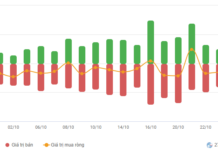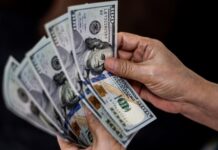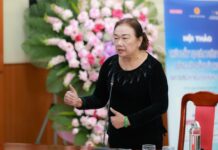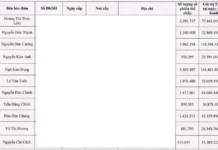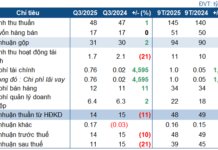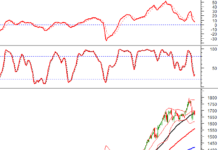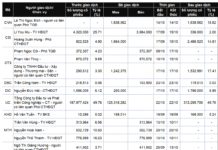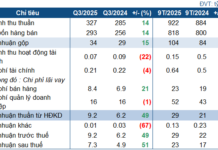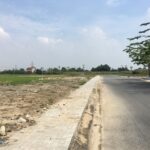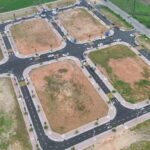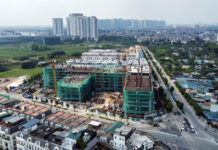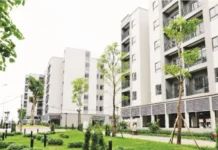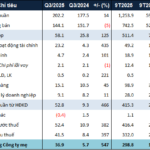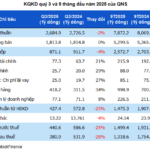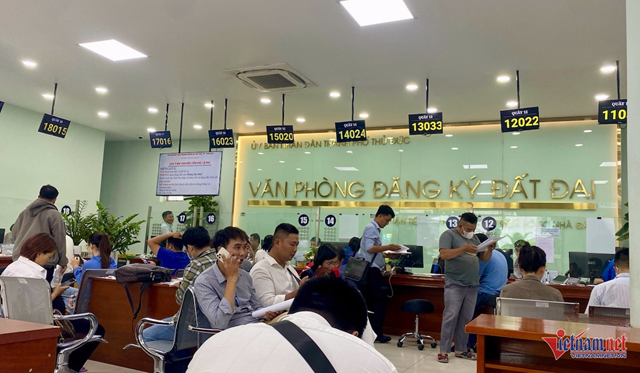According to a recent report by the Market Research and Customer Insights Center, OneHousing, as of Q2 2024, the average primary apartment price across the market reached approximately VND 65 million/sqm, up 25% QoQ and 29.8% YoY.
Apartment prices in the West are the highest in the market at around VND 70 million/sqm, while prices in the East are lower than the market average at about VND 56 million/sqm. Thus, it can be seen that there is a lack of primary apartments priced below VND 50 million/sqm in the market.
Notably, land prices have recently shown signs of “feverish speculation,” with two auctions in Thanh Oai and Hoai Duc districts surpassing VND 100 million/sqm, far exceeding the starting price. Experts argue that such high prices in areas lacking infrastructure, amenities, and sparse population indicate abnormal speculation.
Facing the risk of speculative land price surges, Prof. Dang Hung Vo, former Deputy Minister of Natural Resources and Environment, suggests that taxation, rather than administrative orders, is the key to curbing this issue. ”
I believe that unless we resort to taxation, we will never be able to stop land speculation. In fact, land fever has persisted over the years without thorough resolution, despite the simultaneous implementation of various measures
,” stated Mr. Vo.
Hence, he emphasizes that the most effective and fundamental solution is to impose property taxes. ”
If this measure is not implemented, it will be challenging to curb the land fever. For the past decade, I have been advocating for this, but property taxation has never been enforced
.
Firstly, real estate tax will curb land speculation, prevent hoarding, and deter inefficient real estate investment, such as leaving properties vacant or underutilizing them
,” explained Mr. Vo.
Mr. Vo also stressed that only by controlling speculation can real estate prices decrease, thereby enhancing the economy’s competitiveness and enabling middle and low-income earners to access housing more easily.
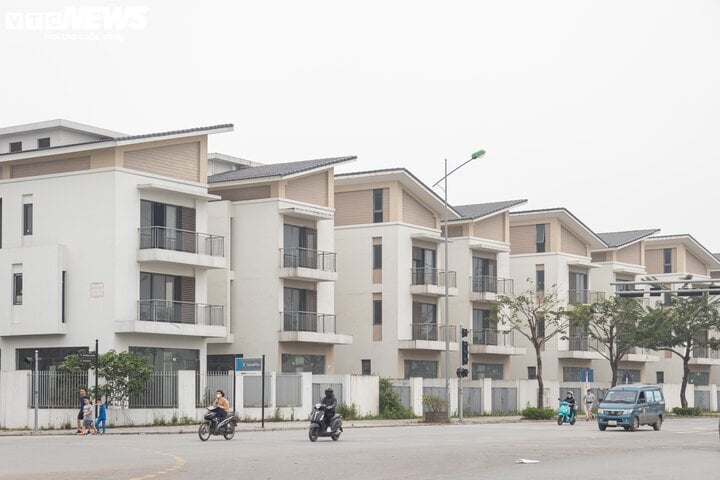
According to experts, taxation is necessary to deter hoarding and inefficient real estate investment, such as leaving properties vacant. (Illustrative image: Minh Duc)
Notably, Mr. Vo suggested that imposing real estate taxes could prevent localized land fever during the urbanization process, such as the establishment of new economic zones or the transition from a district to a city. Additionally, applying progressive taxation to cases of quick resales could be an effective solution.
Specifically, for “wave-riders” who buy and sell properties rapidly, a higher tax rate and a separate tax on the increased asset value due to others’ investments are recommended. Mr. Vo also advised reevaluating the current real estate taxation method to enhance its effectiveness rather than solely focusing on increasing taxes.
Sharing a similar view, Mr. Giang Anh Tuan, Director of Tuan Anh Real Estate Floor, suggested that to curb speculative land price surges, high taxes on property transfers are necessary.
The state should impose high taxes on investors who frequently buy and sell properties within a short period, approximately 2-3 years, or those who own multiple real estate assets and leave them unused. Simultaneously, the state should also levy taxes on individuals with multiple real estate holdings and impose higher taxes if the land remains undeveloped. ”
Currently, the state has a policy of land retrieval for projects that are slow to be put into use, but this only applies to projects and not individuals
,” remarked Mr. Tuan.
Meanwhile, according to architect Pham Thanh Tung, Chief of Office of the Vietnam Association of Architects, vague planning information is one of the root causes of speculative land fever in many localities nationwide. If planning information is not disclosed or is insufficiently disclosed, it creates opportunities for individuals and organizations to exploit the situation, creating waves of price increases and causing speculative land fever, market disruption, and personal gain.
Therefore, to curb speculative land fever, Mr. Tung emphasized the need for transparent planning information accessible to the public. Additionally, people should understand planning correctly, from the overall planning to the subdivision planning, to make informed investment decisions.
Mr. Nguyen Van Dinh, Vice President of the Vietnam Real Estate Brokerage Association, stressed the crucial role of local authorities in ensuring transparent land information, firmly addressing false rumors, and taking strong action against speculators colluding with local officials.
In reality, the operations of many real estate exchanges and brokers are loosely managed or lightly penalized, leading to a lack of deterrence.
”
The authorities should address false rumors and ensure transparent information so that everyone can easily access accurate details instead of relying on speculators for misinformation
,” stated Mr. Dinh.
Mr. Dinh also advised investors against participating in markets exhibiting speculative fever or operating outside legal regulations. Instead, he recommended investing in projects that comply with legal provisions and are permitted to enter the market for transactions.
The City of Ho Chi Minh will Adjust the Collection Rates in the New Land Price Table
The newly proposed land price schedule has increased prices by as much as 5 to 51 times compared to the previous schedule. However, the authorities will collaborate and report to the People’s Committee of Ho Chi Minh City, proposing that the government review and adjust the tax rates and collection amounts as necessary to ensure equitable financial obligations regarding land matters.
The Suburban Hanoi District Offers 50 Residential Plots in an Upcoming Auction
The successful auction of 39 residential land plots has prompted the Land Development Center of Phuc Tho District to offer another 50 plots across three local communes. With a starting bid of VND 19.8 million per square meter, these new plots range from 85 square meters upwards, presenting an exciting opportunity for prospective buyers.





